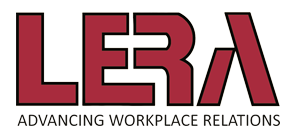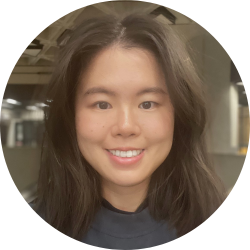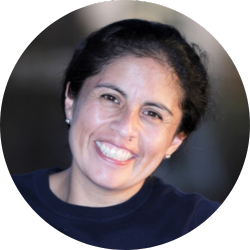LERA 26th Annual PhD Student Consortium"Bridging Knowledge and Collaboration"Saturday, June 29, 2024, 8:30 – 11:15 am(Held in Conjunction with the LERA 76th Annual Meeting, June 26-30, 2024)The 2024 consortium is sponsored by contributions from:
What to expectThis year’s doctoral consortium invites participants to reflect on the importance of establishing networks for the purpose of expanding and disseminating information and knowledge within the labor domain. The focus is on fostering bridges among various societal actors who can collaborate and contribute to research efforts from a multiplicity of perspectives and positions. Through a reflection on the concept of collaborative networks, the goal is to stimulate a debate on its meaning and how it can be enacted in our research, by cultivating relationships not only within the academic environment, but also with corporations, labor organizations, and communities, following the principles of mutualism of knowledge and practice, and diversification of collective voice to support a creative and flexible growth of the labor movement. The consortium will be divided into three moments. The first moment will feature a discussion on activism, collaborative research, and analytical boundaries, from the perspective of a journal’s editor. The second moment will consist of a session on how to build collaborative networks in four different arenas: a) building collaborative networks with firms; b) building collaborative scholar networks; c) building research - labor actors’ collaborative networks; d) building collaborative networks with the state/government. In more detail, for each collaborative area there will be a guest speaker to discuss the opportunities and challenges that characterize collaborations with scholars, companies, civil society, and the state/government. Finally, the last moment will be dedicated to thematic rotating tables where we can discuss the four collaborative arenas discussed during the previous panel. 2024 LERA PhD Student Consortium Agenda8:30 - 8:45 am – Breakfast, welcome, and introductions 8:45 - 9:30 am – Keynotes
9:30 - 9:40 am – break 9:40 - 10:40 am – smaller presentations (15 minutes each) Building collaborative networks with Firms/Corporations - Gregory Distelhorst, University of Toronto - The investigation of specific social phenomena may necessitate partnering with established firms or corporations where these phenomena manifest. These collaborative partnerships enable scholars to gather data, disseminate information, and advance our understanding. Simultaneously, these organizations acquire expertise about the phenomena being investigated. Gregory will present a selection of optimal strategies for establishing, nurturing, and enhancing collaborative partnerships between researchers and businesses or organizations. Building collaborative scholar networks - Dionne Pohler, University of Saskatchewan - Research has benefited from the collaboration of multidisciplinary research teams. which contribute multiple and different perspectives to enhance our understanding of social phenomena within the labor domain . Thus, building academic connections throughout our research endeavors proves to be critical for the knowledge building process. Dionne will share strategies for effective interdisciplinary collaboration with scholars from several disciplines. Building research-labor actors collaborative networks - Janice Fine, Rutgers - Researchers also collaborate closely with labor actors such as workers, unions, workers centers, labor leaders, and other relevant actors. Janice will elucidate strategies and recommendations for cultivating enduring relationships with those who serve as the focal point of our research endeavors. Building a collaborative relationship with the state/government/international organizations - Ken Jacobs, University of California, Berkeley - Institutional actors, both at national and transnational level, play a fundamental role in the governance of labor relations, in the enforcement of labor standards, also in collaboration with civil society (co-enforcement), as well as in the dissemination of data and information on the labor market. Researchers can study the contribution of these institutional actors through secondary data study and databases (e.g., ILO), or through field research in collaboration with these institutional actors. Ken will talk about how to establish relations with institutional actors, from the initial contact (a difficult phase) to the analysis of what has been done in the research phase, as well as the pros and cons of a collaboration. 10:40 - 11:05 am – Rotating roundtables – Building networks 11:05 - 11:15 am Closing Evening activities to be determined
RSVPYou will have the opportunity to RSVP to this event at the time that you register for the LERA 76th Annual Meeting, June 26-30, 2024, Manhattan, NY. If you are already registered and would like to attend this consortium, please contact [email protected] so it can be added to your registration.
|
|||||||||




